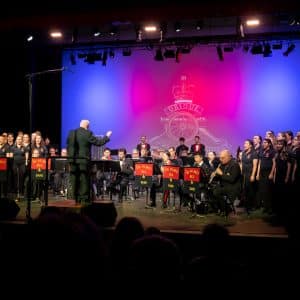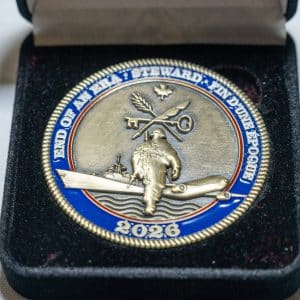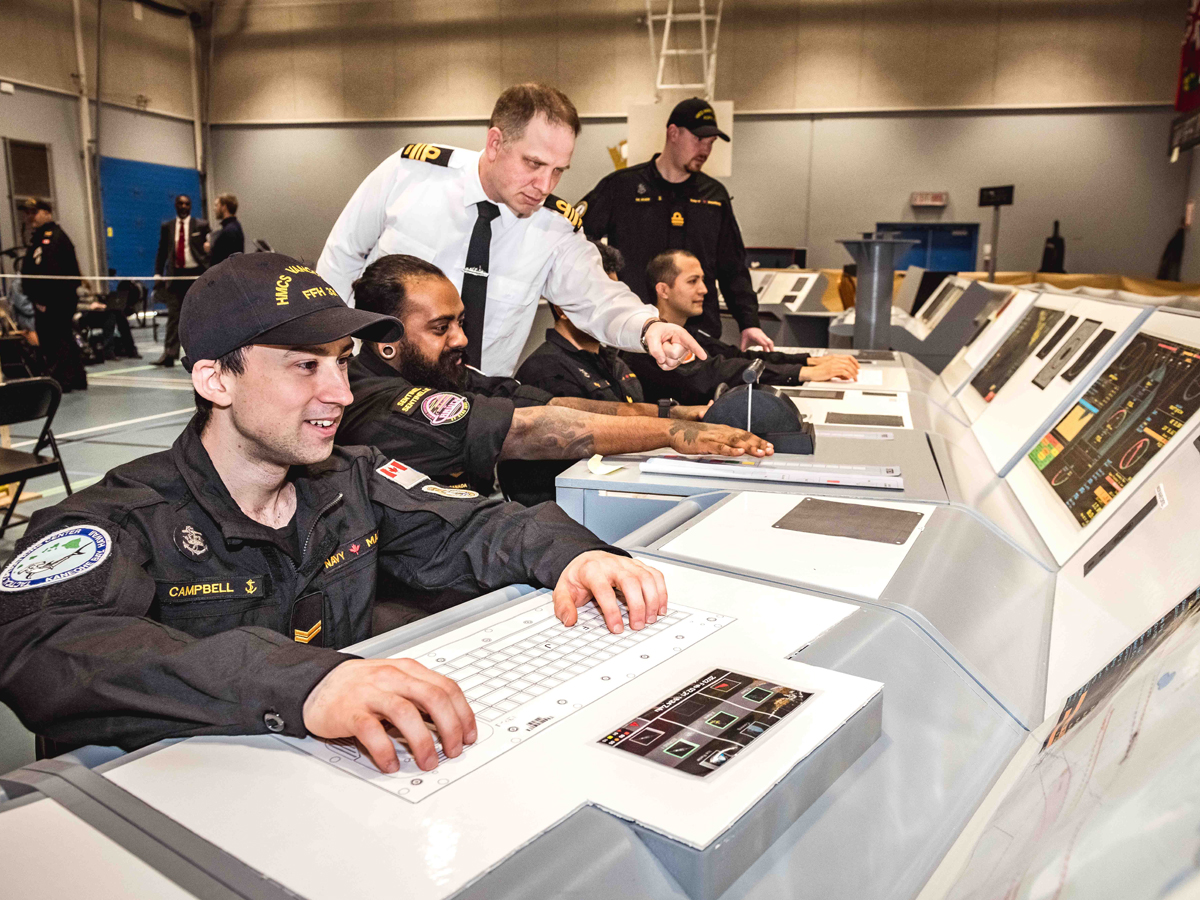
Under the supervision of Lieutenant-Commander (LCdr) David Canning, CSC Project Director (DNMCP), MARPAC sailors familiarize themselves with the layout of the proposed Canadian Surface Combatant (CSC) bridge design. Left to right: Sailor First Class (S1) Nicholas Campbell, S1 Isaac Priyanthan, (Obscured), Sailor Second Class Daniel Yaretz, and Lieutenant (Navy) Aidan De Boer.
Michael McWhinnie, Public Affairs Advisor, NPTG — By definition ‘the future’ is something that will never arrive. It is a term that evokes a sense of abstraction and of fantastical things that exist primarily in our imagination.
And so it must have seemed to senior naval leadership as they used the term ‘future fleet’ during the first decade of the current millennium, when discussing the eventual and inevitable replacement to the Iroquois-class destroyers and the current workhorse of the Royal Canadian Navy (RCN) – the Halifax-class frigates.
It’s only natural. With a planning horizon in excess of 25 years, none of those who initiated the Canadian Surface Combatant (CSC) programme could have reasonably expected to be in uniform to see those vessels enter service. And so it remained for the majority of RCN personnel. As the years have passed, CSC has continued to be a distant and abstract idea. Until recently, when a select group of sailors and officers stepped foot on the bridge of a Canadian Type 26 frigate (albeit a full-scale replica) for the first time.
“You could sense the excitement amongst the participants,” observed Lieutenant-Commander (LCdr) David Canning, organizer. “For most, it was the first time they encountered anything tangible connected to the CSC design process. Their eagerness to serve aboard this fast-approaching class of warship was evident.”
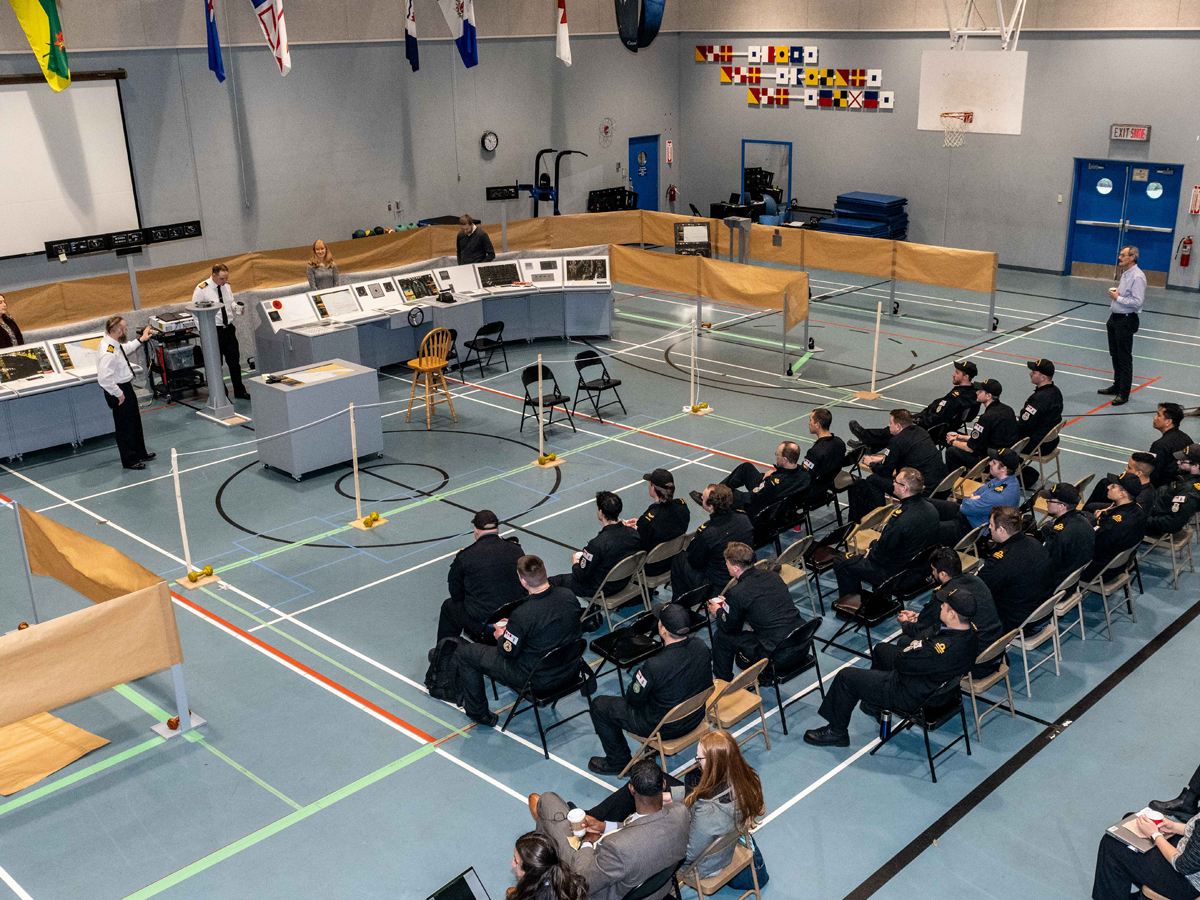
During the week of Mar. 6, LCdr David Canning led a Bridge Design Validation exercise at the Nixon Building, Work Point. Supported by a team of Department of National Defence managers, Canadian Armed Forces personnel and Defence Industry representatives, the exercise allowed MARPAC sailors to provide feedback as they conducted a range of operational scenarios on a full-scale bridge mock-up.
LCdr Canning is the Deputy Project Director for CSC and normally works in the offices of Director Naval Major Crown Projects (DNMCP) in Ottawa. He oversaw the bridge design validation exercise, which was a collaborative effort involving DND managers, RCN personnel and Defence Industry representatives. The event ran March 6–10 within the Nixon Building gymnasium at Work Point. The weeklong agenda began with information sessions and ended with a short visits programme. The bulk of the effort entailed running naval personnel through a range of notional evolutions and operational scenarios as they ‘crewed’ a purpose-built, full-scale bridge mock-up.
“The first thing people commented on is the scale of the thing,” said LCdr Canning in reference to a bridge area delineated by large ribbons of brown parcel paper denoting bulkheads and bridge wings.
Measuring ten per cent longer, a quarter again as wide and at almost double the displacement, the CSC will be significantly larger than our current warships.
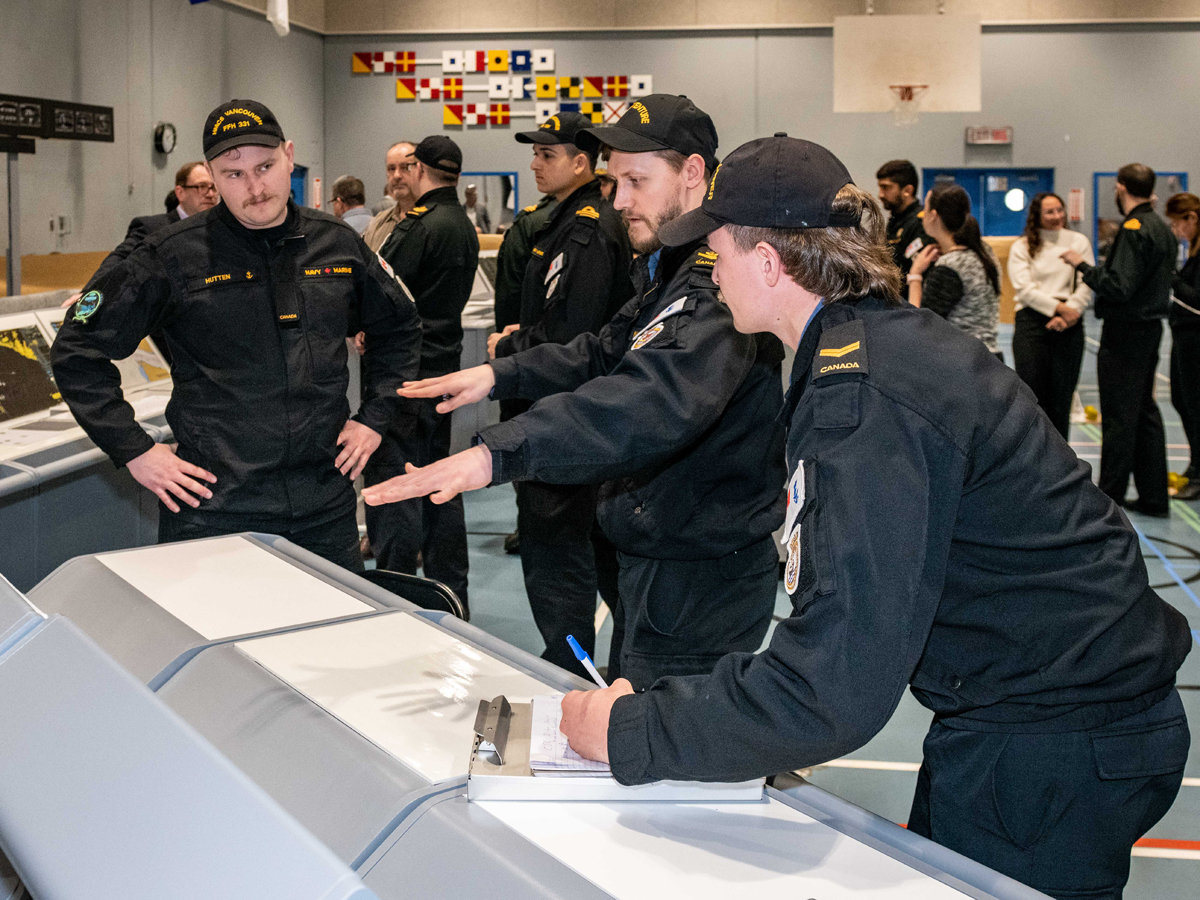
During the week of Mar. 6, LCdr David Canning led a Bridge Design Validation exercise at the Nixon Building, Work Point. Supported by a team of Department of National Defence managers, Canadian Armed Forces personnel and Defence Industry representatives, the exercise allowed MARPAC sailors to provide feedback as they conducted a range of operational scenarios on a full-scale bridge mock-up.
Although nobody was fooled into believing the were on an actual warship, the mock up accurately represented the CSC dimensions and included a wide range of displays and instruments ranging from the familiar (compass repeaters, helm and throttle station) to the new (electronic chart table) or improved (reconfigurable digital overhead displays and bridge wing selectable navigation displays). There were even two easily recognizable bright red action alarms.
“The sailors seemed very enthusiastic to be participating,” observed LCdr Canning. “I think they all understood how the validation process is essential to assuring we get things right and that this was their opportunity to influence the design of a vessel we are building to meet the demands of naval operations for the coming decades.”
Real-time feedback from the sailors was noted and compiled alongside staff observations and miscellaneous recorded data. All collected information will be analysed and serve to inform future project design decisions.
“The ultimate objective is to ensure the CSC’s bridge configuration incorporates the best technology available from Canadian Defence Industry and its layout is optimized to support the operational success of our sailors well into the future,” stressed LCdr Canning.
The CSC vessels will be constructed at Irving Shipyards in Halifax, NS. The initial keel is expected to be laid in the next two years with the first-of-class ship entering service early in the next decade. Although navigators calculate distance in nautical miles, most sailors measure it in time. The bridge design validation exercise was a reminder to all present, not only is CSC making steady headway – it is getting closer than we realized.






